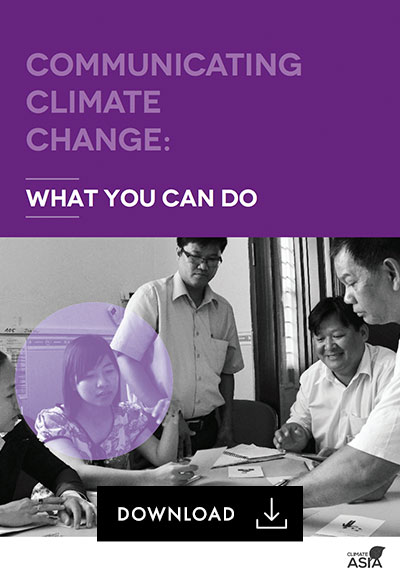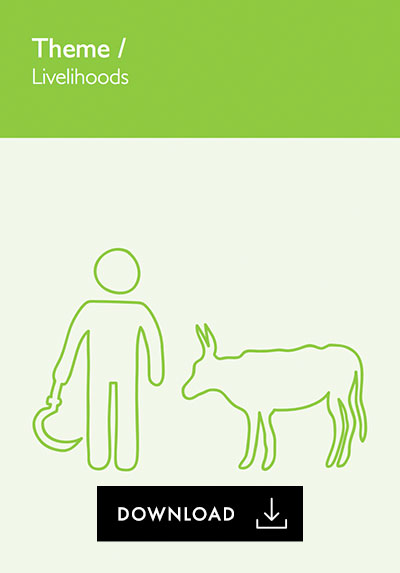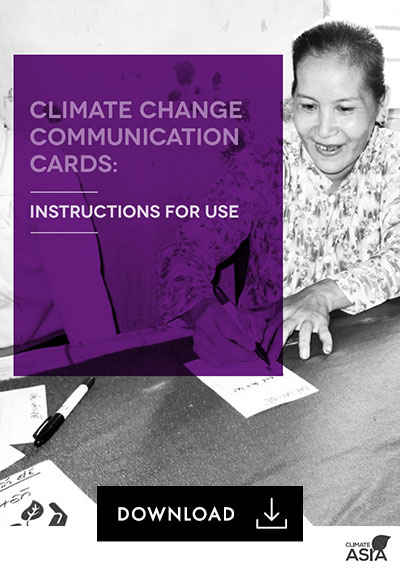BBC Media Action | Communicating Climate Change in Asia
Background
BBC Media Action is the BBC’s international development charity, which aims to use media and communications to inform, connect and empower people around the world.
BBC Media Action conducted Climate Asia; the world’s largest study of people’s everyday experience of climate change. The BBC Media Action team interviewed 33,500 people across 7 countries in Asia - Bangladesh, China, India, Indonesia, Nepal, Pakistan and Vietnam - to build a picture of how people in the region live and deal with climate change.
The challenge
How might we empower local organisations in Asia to deliver engaging and effective communications around climate change to people living with the impacts?
Framing the challenge
Climate Asia aimed to create unprecedented national and regional data around the impacts of climate change on people’s lives, and to make this data freely available to the public through an interactive online portal. The ultimate goal of the project was to enable any organisation in the region (from governments and donors to the media and NGOs) to use what the team had learned to develop better communication initiatives around climate change.
Two years into the project, the team realised that open data alone may not enough to achieve this outcome. Humanly was brought in to tackle this problem, reframing the challenge as:
How might we empower local organisations in Asia to develop engaging and effective communications around climate change to people living with the impacts?
Our Process
Humanly used a human-centred design approach to tackle this challenge, in a highly collaborative process involving all stakeholders.
Research
We began by carrying out an extensive review of existing climate change communication initiatives in the region, in order to understand the status quo and identify challenges and opportunities. We built on this by profiling our target users and doing user research to understand their needs, attitudes and constraints.
This revealed an underlying lack of strategy when making decisions about initiatives, for example when choosing which audience to target and which format and channels to use.
Co-creation
We facilitated a co-creation process with all stakeholders to generate, develop and evaluate ideas. We ran idea generation sessions with BBC Media Action teams in the UK, India and Nepal, generating hundreds of ideas for potential solutions, before clustering ideas and identifying themes.
These ideas were then developed and refined into 8 concepts, which were taken into feedback and co-creation sessions with target users in India and Nepal. This enabled us to prioritise and combine ideas into 2 final concepts.
Prototyping
We developed prototypes for the two tool concepts, which we took to in India and Vietnam to test with 3 target organisations (Oxfam, CAREInternational and WOTR).
Our Solution
The end result was the delivery of two tools:
1. Guide to communicating climate change
This tool is designed primarily for internal use within organisations. It provides practical guidance on how to develop an effective communications strategy, including a strategic framework, tips and activities.
2. Cards for co-creation with audiences and partners
This set of cards can be used by organisations to co-create their communications strategy with different groups of people, including target audiences to better understand their communication needs and preferences. The cards come with instructions on how they can be used for collaboration with stakeholders, including a number of different activities.
Together these tools enable organisations to match local insights into their target audiences with the national and regional data available through the BBC Media Action data portal to formulate an effective communications strategy around climate change.
The tools can be viewed below or freely downloaded from BBC Media Action’s Data Portal.
Outcomes
Outcomes
The tools were officially launched by BBC Media Action with press events in all 7 target countries, with hard copies being distributed to local organisations. They also formed the base of a training programme rolled out by BBC Media Action across the region.
Since the initial launch the tools have translated into Bengali and Hindi and repurposed for different contexts, including the creation of communications to empower women.









